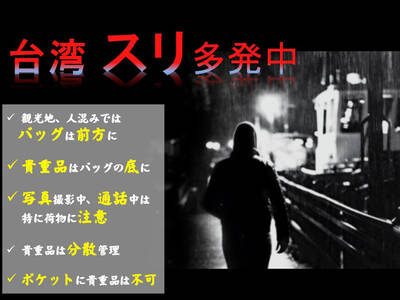The Agricultural Technology Research Institute’s budget plan shows that yet another “fat cat” has been raised and fed by President Ma Ying-jeou’s (馬英九) administration, critics said yesterday.
The institute, funded by the Council of Agriculture, is paying its leadership — mostly retired and transferred officials — exorbitantly, while farmers are struggling and wages have been stagnant for 16 years, the critics said.
The institute was based on the original animal technology institute, with the addition of members from other agriculture-related offices, and was established with the aim of developing ways to add value to the nation’s farm products.
According to the budget report provided by the Legislative Yuan’s Budget Center, the institute had a gross income of NT$600 million (US$20 million) this year, 84 percent of which came from the government.
About 33 percent of its budget, or NT$200 million, was for personnel costs.
The report says that the former head of the council’s Department of Science and Technology, Yeh Ying (葉瑩), was assigned to the post of institute president immediately after she retired, and is now paid NT$188,110 a month — close to that received by a Cabinet minister.
Although Yeh has not been receiving a monthly pension and the preferential interest rate for civil servants, her transfer to the post with a high salary as a retired official and the role change from a supervisor to a supervised unit are controversial.
The average annual income for an employee at the institute is NT$1.175 million, while originally at the animal technology institute it was NT$1.01 million.
Therefore, the transferred staff have had a 16.34 percent raise, or an addition of NT$165,000 to their average annual income.
About 80 percent of the transferred executives had a promotion or a raise, two of whom were appointed president and vice president of the institute’s animal technology laboratories, whose raises ranged from NT$28,000 to NT$42,000, with the president being paid NT$123,750 monthly.
Documentary filmmaker Kevin Lee (李惠仁), whose films disclosed government negligence and a cover-up of avian influenza in the nation, said that the previous animal technology institute had long been the “middleman” for the council, with each of its researchers having seven or eight government-commissioned projects on average, for the endorsement of government policies.
Lee said it was preposterous to give a raise to this kind of institute with taxpayers’ money.
Lee Wu-chung (李武忠), a professor of agricultural economics and former director of the Yunlin County Government’s Department of Agriculture, said for the institute to deserve this handsome pay, it has to earn the credit.
The institute’s budget would have to be cut in future if it could not meet the performance requirement, he said.
Yeh said that low salaries could not attract young people to the field of agricultural research and development and emphasized that her payment and transfer were decisions made with the consent of the board.

GENSLER SURVEY: ‘Economic infrastructure is not enough. A city needs to inspire pride, offer moments of joy and foster a sense of belonging,’ the company said Taipei was named the city with the “highest staying power” in the world by US-based design and architecture firm Gensler. The Taiwanese capital earned the top spot among 65 cities across six continents with 64 percent of Taipei respondents in a survey of 33,000 people saying they wanted to stay in the city. Rounding out the top five were Vietnam’s Ho Chi Minh City (61 percent), Singapore (59 percent), Sydney (58 percent) and Berlin (51 percent). Sixth to 10th place went to Monterrey, Mexico; Munich, Germany; Sao Paulo, Brazil; Vancouver; and Seoul. Cities in the US were ranked separately, with Minneapolis first at

The Japan-Taiwan Exchange Association has cautioned Japanese travelers to be vigilant against pickpockets at several popular tourist spots in Taiwan, including Taipei’s night markets, the Yongkang Street area, Zhongshan MRT Station, and Jiufen (九份) in New Taipei City. The advisory, titled “Recent Development of Concerns,” was posted on the association’s Web site under its safety and emergency report section. It urges travelers to keep backpacks fully zipped and carried in front, with valuables placed at the bottom of the bag. Visitors are advised to be especially mindful of their belongings when taking photos or speaking on the phone, avoid storing wallets and

Scoot announced yesterday that starting in October, it would increase flights between Taipei and Japan’s Narita airport and Hokkaido, and between Singapore and Taipei. The low-cost airline, a subsidiary of Singapore Airlines, also said it would launch flights to Chiang Rai in Thailand, Okinawa and Tokyo’s Haneda airport between December and March next year. Flights between Singapore and Chiang Rai would begin on Jan. 1, with five flights per week operated by an Embraer E190-E2 aircraft, Scoot said. Flights between Singapore and Okinawa would begin on Dec. 15, with three flights per week operated by Airbus A320 aircraft, the airline said. Services between Singapore

ENDORSING TAIWAN: Honduran presidential candidate Nasry Afura said that Honduras was ‘100 times better off’ when it was allied with Taipei The Ministry of Foreign Affairs yesterday said it would explore the possibility of restoring diplomatic relations with Honduras based on the principle of maintaining national interests and dignity. The ministry made the remarks in response to reporters’ questions regarding an article titled: “Will Taiwan Regain a Diplomatic Ally?” published in The Diplomat on Saturday. The article said Honduras’ presidential election in November could offer Taiwan the chance to regain an ally, as multiple candidates have promoted re-establishing diplomatic relations with Taiwan. Honduras severed diplomatic ties with Taiwan in March 2023 in favor of Beijing, but since switching its diplomatic recognition,